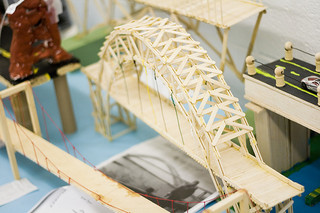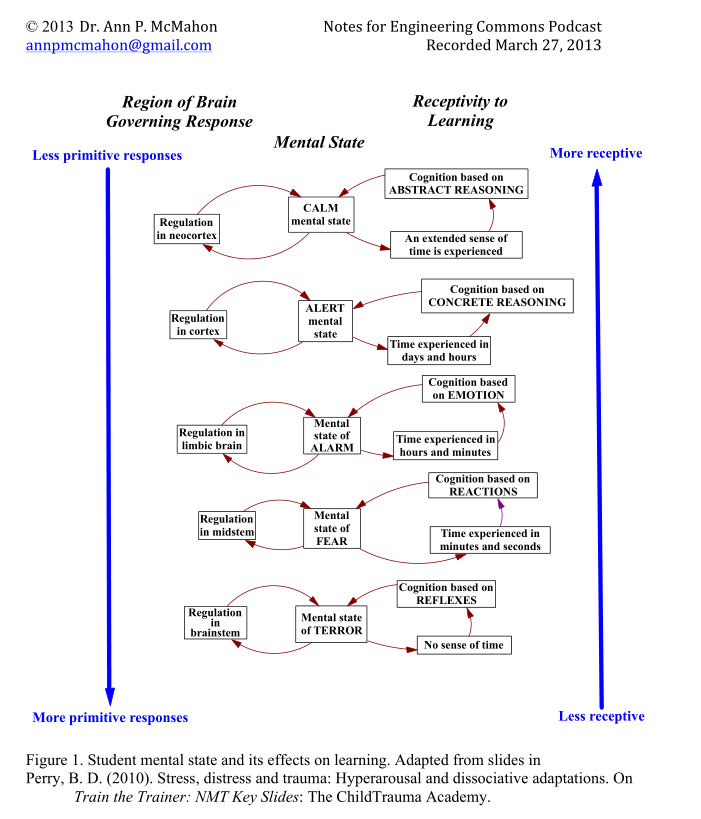Podcast: Play in new window | Download
Subscribe: Apple Podcasts | RSS
 Brian and Jeff talk with Ann McMahon about sharing one’s passion for engineering with pre-college students.
Brian and Jeff talk with Ann McMahon about sharing one’s passion for engineering with pre-college students.
- Brian has experienced the glassy-eyed look of others listening to his engineering stories.
- Our guest for this episode is Ann McMahon, an aerospace engineer who advises educators on how best to share science and engineering with K-12 students.
- Ann originally wanted to be an astrophysicist, but ended up in the aerospace industry after acquiring degrees in mechanical engineering.
- After a career with McDonnell Douglas, our guest started volunteering in her son’s classroom; this led to an interest in educational matters.
- For the past decade, Ann has been working with the Smithsonian Institution’s National Science Resources Center as a National Faculty member for a program called Leadership Assistance for Science Education Reform (LASER).
- Some existing programs for introducing engineering into the classroom include Project Lead the Way, and Engineering is Elementary.
- Brian wonders if engineering will ever be taught as its own subject; Ann is hopeful that schools are moving their curricula in this direction.
- “Wicked” problems are complex issues that have no “right” or “wrong” answers; and each possible solution presents even more potentially unforeseen consequences.
- In comparison, “tame” problems are definitively right or wrong, and lack the complexity of real-world issues.
- Having right or wrong answers, rather than evaluating tradeoffs, misses the essence of the engineering profession.
- It will likely take time for educators to determine how to assign grades in the absence of easily-defended solutions.
- An effort is being made in many classrooms to emphasize non-cognitive skills, such as collaborating, taking on the perspectives of others, arguing from evidence, and getting along with other team members.
- Susan Cain has recently released her book, Quiet: The Power of Introverts in a World That Can’t Stop Talking.
- The concept of an “object world” is introduced in Designing Engineers by Louis L. Bucciarelli.
- Ann recently gave a TEDx talked titled Engineering Empathy (use password tedxgladstone).
- We learn best when we are supported by relationships with important others who help us stretch to master new challenges and cope with potentially overwhelming situations.
- Relationships that a child has with a teacher and peers at school are influenced by the child’s earlier experiences.
- Our ability to learn is influenced by our mental state, as indicated in the following diagram.

- Ann believes that engineering offers unique opportunities for students to acquire important cognitive and social skills, including a chance to practice emotional regulation.
- Design competitions are great for some students, but others may not thrive in such an environment.
- Sharing what we know, at an appropriate level, is the best way to convey our interest in engineering with students.
- Ann can be reached at annpmcmahon *at* gmail.com; or found online at AnnPMcMahon.com.
Thanks to PiK Yeoh for the photo titled “Child-craft.” Podcast theme music provided by Paul Stevenson